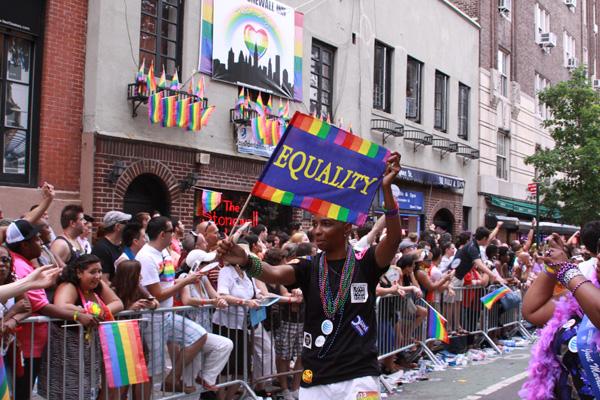
We are in the midst of Pride Month, an annual celebration by lesbian, gay, bisexual, and transgender people that promotes equal rights, dignity, and positive affirmation. Pride month is all about celebrating diversity whether it comes in the form of sexuality or gender. The origin of Pride Month harkens back to the Stonewall Riots that took place in June of 1969. During that time, law enforcement often raided gay bars. During these raids, patrons were required to show identification. If a patron of the gay bar did not have identification or was dressed in full drag, then they were arrested. Even though the Stonewall Inn was mostly attended by gay men, women could be arrested if they were not wearing three feminine articles of clothing. Other patrons would be taken to the bathroom to verify their sex and people not wearing clothing that matched the gender assigned at birth were often arrested. As a person who was born less than a decade after the Stonewall Riots, these practices of law enforcement are baffling to me. They seem like gross oversteps of the law, privacy, and individual's freedom to be who they are.
So, the question some may be asking is, what do the Stonewall Riots or Pride Month have to do with preventing sexual violence? According to a study, cited in an earlier blog from the Office of Victims of Crime, "One in two transgender individuals are sexually abused or assaulted at some point in their lives." We also know that LGBT populations are vulnerable to violence following the 1998 death of Matthew Shephard. What is powerful to me about these stories is their similarity. There is a policing of gender going on here that is similar to James Dobson's appeal to manhood. This desire to protect loved ones or vulnerable populations is being twisted to justify men and the state via law enforcement to be bathroom monitors. This thinking leads to folks deciding to act as bathroom monitors because they see gender expression as something that not private. When a person's gender expression does not match their biological sex, they see that person as sneaky, and someone needs to be found out. As a result, those interactions turn aggressive and can at times become violent. It is exhausting to see the same tired arguments that people historically use against LBGTQQI folks by implying them to be pedophiles and saying that they are looking to commit sexual violence against vulnerable populations. The facts tell us that they are the vulnerable population and that the information is inaccurate. One's biological sex is not anyone's business, but theirs. Here is the epitome of policing gender and gender expression; standing at the bathroom door or going into the bathroom to inspect people's private parts is the epitome of being a busybody. It is not necessary, and it is a violation of one's privacy.
In 1969 there was no equality, dignity, or positive affirmation in the choices made by law enforcement. Those choices were a violation. And, the fact that similar violations occur to this day is proof that we still have tons of work to do as a community to ensure that all have the freedom to express and be their full selves.



